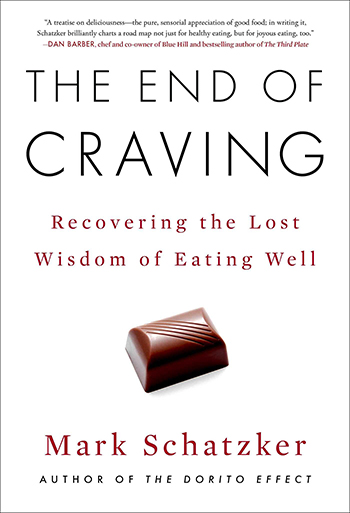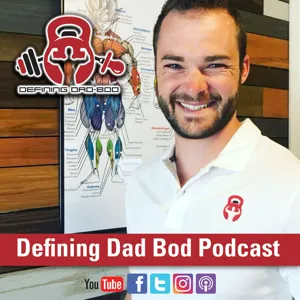Podcast Summary
ADHD and Obesity: A Neuroscience Connection: The connection between ADHD and obesity is due to altered reward processing, leading to increased dopamine release from food and potential obesity. Obesity can also worsen ADHD symptoms by impacting BDNF production. Understanding this neuroscience can lead to new interventions.
There is a strong connection between ADHD and obesity. This connection is due to altered reward processing in individuals with ADHD, which makes the dopamine release from food more potent and more likely to lead to obesity. Conversely, obesity can worsen ADHD symptoms by interfering with the production of brain-derived neurotrophic factor (BDNF), a chemical that stimulates neuron growth. This neuroscience insight opens up new possibilities for interventions to help individuals with ADHD and obesity. Meanwhile, for Mother's Day shopping, Whole Foods Market offers unbeatable savings on premium gifts, flowers, desserts, and more. Start by saving 33% on body care and candles with Prime. Then, get a 15 stem bunch of tulips for just $9.99 each with Prime. Complete mom's menu with festive rose, berry chantilly cake, and other special treats. In summary, the connection between ADHD and obesity is an important area of research, and understanding the underlying neuroscience can lead to new interventions. Meanwhile, Whole Foods Market is a great destination for Mother's Day shopping with unbeatable savings and a wide range of high-quality gifts and treats.
ADHD and Intense Food Cravings: People with ADHD experience stronger food cravings but less satisfaction, leading to a cycle of needing more food to feel satisfied. Impulsivity and emotional regulation issues also contribute to overeating.
Individuals with ADHD experience more intense cravings for food, but the satisfaction they get from it is lower compared to the neurotypical population. This means they require more food to feel satisfied, leading to a vicious cycle. Additionally, people with ADHD have impulsivity issues and a smaller gap between thought and action when it comes to food, making it harder for them to resist impulses. Lastly, they may struggle with emotional regulation, leading to potential overeating as a coping mechanism. Understanding these unique challenges can help in developing effective strategies for managing food intake and overall health in individuals with ADHD.
Emotional dysregulation and dopamine response in ADHD: People with ADHD may have intensified emotions and require more pleasurable stimuli to regulate, leading to stronger cravings and potential overconsumption
Individuals with ADHD experience more intense and prolonged negative emotions, leading to amplified cravings and increased activation of the dopamine circuitry in response to stimuli. This means that people with ADHD may require more of a pleasurable stimulus, such as food, to help regulate their emotions and feel better, resulting in stronger cravings and potentially overconsumption. This emotional dysregulation and its impact on dopamine response is a unique challenge for individuals with ADHD, particularly in relation to food and other rewarding substances.
ADHD and Increased Likelihood of Obesity: People with ADHD are more prone to obesity due to heightened emotions and cravings, decreased food reward response, and altered inhibitory control. Savoring food, avoiding distractions, and making unhealthy foods less accessible can help improve relationship with food and overall health.
Individuals with ADHD have a heightened sensitivity to negative emotions and increased cravings, leading to a greater likelihood of obesity. This is due to a decreased food reward response and altered inhibitory control. To counteract these neurological mechanisms, it's essential to savor food and avoid distractions while eating, as well as make unhealthy foods require more effort by not keeping them readily available. By implementing these strategies, individuals with ADHD can improve their relationship with food and reduce the negative impact on their overall health.
Making your own food from scratch helps improve emotional regulation and reduce unhealthy food impulses: Preparing meals from scratch increases the gap between impulse and reward, promoting healthier eating habits and better emotional regulation.
To improve emotional regulation and reduce unhealthy food impulses, it's essential to increase the gap between an impulse and a reward by making your own food from scratch. This not only promotes healthier eating habits but also helps in better emotional regulation. The process of baking or cooking takes time, and during this time, individuals become more aware of their emotions and can make healthier choices. Moreover, being unaware of negative emotions and poor emotional regulation skills is a common issue among individuals struggling with food impulses. By being more mindful of our emotions, we can make better food choices and lead healthier lives. Additionally, it's crucial to avoid buying processed and unhealthy food, as this can make it easier to give in to impulses. Instead, focus on making healthy food choices by preparing meals from scratch. This approach not only helps in emotional regulation but also sets the stage for a healthier lifestyle.
Effective emotional management for ADHD and obesity: Individuals with ADHD and obesity often lack emotional regulation skills and seek unhealthy coping mechanisms due to brain's reward system. Daily emotional processing through journaling, therapy, meditation, or taking a walk with a pet can help manage emotions, reduce cravings, and make healthier choices for long-term success.
Effective emotional management is crucial for individuals with ADHD and obesity. The brain's reward system, particularly the nucleus accumbens, can lead individuals to seek out unhealthy coping mechanisms, such as excessive gaming or overeating, when faced with negative emotions. These individuals often lack the necessary emotional regulation skills and may dissociate, making them unaware of the emotional drivers behind their behaviors. To address this issue, daily emotional processing is essential. This can be achieved through various methods, such as journaling, therapy, meditation, or even taking a walk with a pet. By managing emotions, individuals can reduce cravings and decrease the pleasure derived from unhealthy behaviors, making it easier to make healthier choices. This approach not only helps in the moment but also sets the stage for long-term success.
Obesity's Impact on Brain Function: Obesity leads to hormonal changes, inflammation, and decreased BDNF production, negatively affecting brain growth and function, potentially causing ADHD symptoms.
Obesity is more than just an excess of fat storage. Adipocytes, the cells responsible for storing fat, are hormonally active and function as endocrine cells. When someone is obese, these cells grow and produce hormones, including interleukins, which increase inflammation and decrease brain-derived neurotrophic factor (BDNF). BDNF is crucial for brain growth and development. The decrease in BDNF can result in ADHD symptoms. Additionally, obesity can affect insulin production and metabolism, further contributing to brain function issues. In essence, obesity sets off a chain reaction that puts the body in a constant state of fighting mode, halting the building process and negatively impacting brain function.
Insulin resistance impacts satiety signaling: Insulin resistance from increased fat cells disrupts brain's satiety signal, leading to overeating and potential weight gain. Addressing insulin resistance through lifestyle changes and medical interventions could provide more effective solutions.
The process of consuming food and the subsequent release of insulin plays a significant role in signaling satiety to the brain. However, when there is insulin resistance due to an increased number or size of fat cells, the satiety signal is impaired, leading to increased food intake and potential weight gain. This insulin resistance can also contribute to mood problems and anxiety through inflammation. People with ADHD may be more susceptible to this cycle due to amygdala hypersensitivity and increased inflammation from adipocytes. It's important to understand this complex interplay between insulin, fat cells, and brain signaling to better address the root causes of overeating and related health issues. Instead of solely focusing on calorie restriction or willpower, addressing insulin resistance through lifestyle changes and potential medical interventions could lead to more effective and sustainable solutions.
Addressing ADHD and obesity with a multi-faceted approach: Use emotional regulation techniques for ADHD and eat high-fiber, high-volume foods for obesity. Regular exercise and anti-inflammatory, insulin-metabolism-affecting foods also help.
Addressing both ADHD and obesity requires a multi-faceted approach. Emotional regulation techniques are essential for managing ADHD, but they won't solve the problem of obesity on their own. To help with weight loss, we can utilize our body's natural mechanisms, such as gastric stretch. Eating high-fiber, high-volume foods can help stretch the stomach and make us feel full, independent of emotions or dopamine levels. Regular exercise is also crucial as it improves insulin resistance and overall physiology. Additionally, consuming anti-inflammatory and insulin-metabolism-affecting foods, as recommended by professionals, can further support this approach. By focusing on both emotional regulation and physical solutions, we can effectively address the interconnected challenges of ADHD and obesity.
ADHD and obesity's interconnected negative impact: Understanding the link between ADHD and obesity can lead to effective treatments for both conditions. Addressing both conditions together can improve outcomes.
ADHD and obesity are interconnected in a negative way, but understanding the underlying mechanisms can lead to effective treatments for both conditions. During clinical trials, people with ADHD are often excluded due to the controlled nature of the studies. However, this exclusion can lead to an increase in both ADHD and obesity cases as interventions don't account for both conditions. There is a synergistic effect between the two, with obesity making the brain more vulnerable to ADHD and ADHD affecting eating habits. It can seem like a difficult battle to win as one condition can worsen the other. However, progress can be made by addressing both conditions together. For instance, improving ADHD can lead to weight loss, and vice versa. As a clinician, I have seen this firsthand. It's essential to discuss these mechanisms with your healthcare provider if you're dealing with either condition. For those interested in learning more, there are resources available, such as our comprehensive guide on ADHD that delves into neuroscience and provides practical techniques. Additionally, for parents struggling to get their kids to put down their games, consider the book "How to Raise a Healthy Gamer," which combines neuroscience research with clinical practice to help navigate the challenges of gaming addiction.







